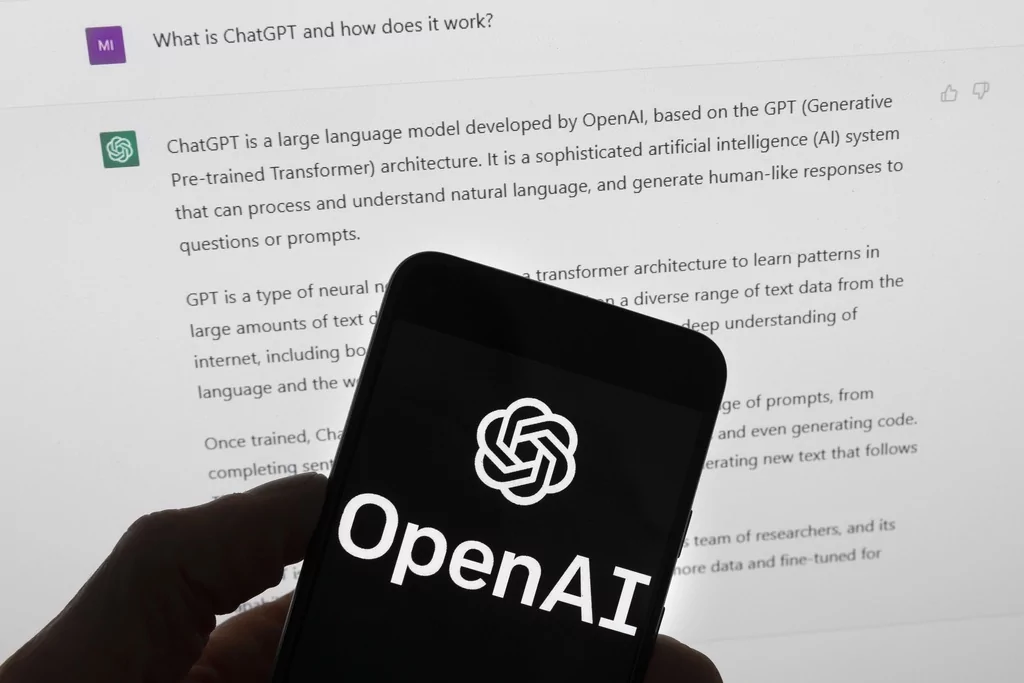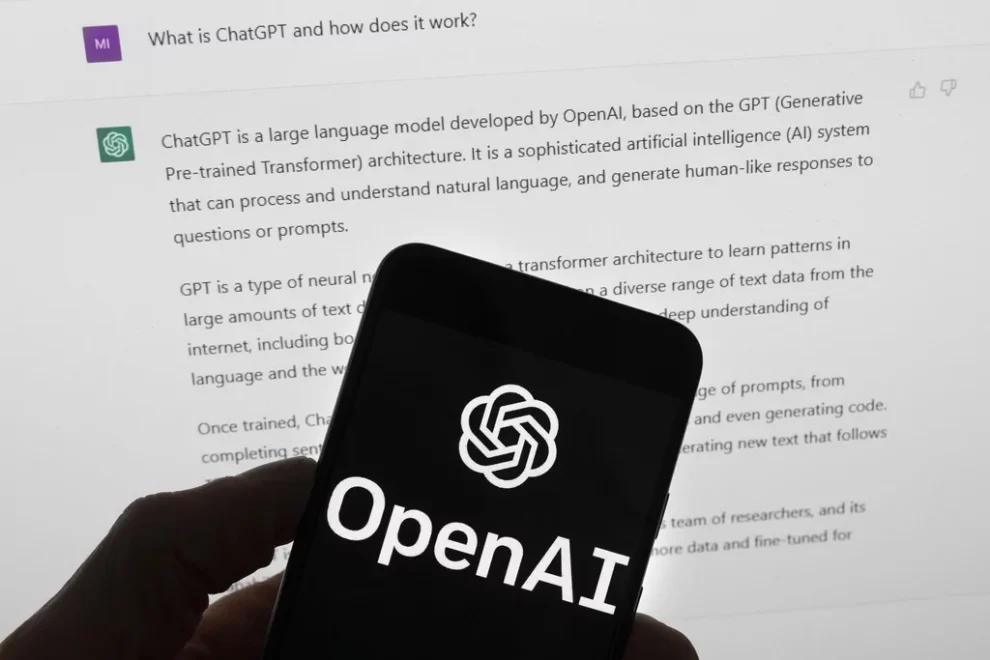Artificial intelligence is fast becoming an integral part of everyday life. But as the technology explodes, the debate intensifies on how to harness it properly and ethically. This Washington Examiner series, The Integration Era, will look at how AI is being used responsibly in Congress, how its usage is causing headaches in schools, and how Congress and courts are addressing abuses that target vulnerable people and threats to intellectual property.
Congress has an age-old problem: Massive bills often land on lawmakers’ desks just hours before a vote. The scale of the work far exceeds the capacity of most offices — and has for decades.
Artificial intelligence tools, particularly large language models such as OpenAI’s ChatGPT, are making a difference in addressing these long-standing annoyances and busy work. They’re being used to summarize reports, convert data into usable formats, translate dense text into plain language, and offload basic research tasks that once ate up hours, according to current and former staffers who spoke to the Washington Examiner.
While formal adoption remains uneven, daily use of these tools is reshaping how congressional offices process information, respond to the pace of policymaking, and prepare lawmakers to do their jobs.
“When I first got into the office, not a single staffer had a ChatGPT account,” said Colin Raby, who was an AI specialist for Rep. Raja Krishnamoorthi (D-IL) and now works with the House select committee on the Chinese Communist Party. “Now, I’d say about two-thirds of the staffers I worked with have an account and use it daily.”
Staffers across Capitol Hill are slowly but surely turning to a new kind of assistant: ChatGPT Pro, the most premium subscription OpenAI offers, designed for users who need enhanced access and features compared to the lower-tier levels.
Outside groups are also filling the education gap. The POPVOX Foundation, a civic tech nonprofit group, has been training congressional staff on how to use large language models effectively and responsibly.
“We’ve talked to staff who are using it as they would work with an intern — to help streamline research by summarizing reports, translating legislative text into easy-to-understand talking points, or helping to pull the main points out of witnesses’ submitted written testimony prior to a hearing,” said Aubrey Wilson, the group’s director of government innovation and a former House legislative aide.
From overload to automation
For most congressional aides, the core challenge isn’t a lack of interest or work ethic — it’s bandwidth. Each office receives a constant stream of legislative text, agency notices, constituent mail, and news briefings, all of which must be processed and understood quickly.
A Senate committee staffer described using ChatGPT to get through 40- and 50-page agency reports from places like the Federal Communications Commission and the National Telecommunications and Information Administration.

“We receive so much paper, it’s hard to digest it all,” the staffer said. “I use AI to get a summary. If something jumps out, I go to the full report.”
They’ve also used the tool to reformat raw data into clean tables. “It takes me 15 minutes. ChatGPT does it in 30 seconds. But I never give it anything sensitive.”
Raby said AI has been especially useful for transforming information from one format into another — turning flyers into calendar invites, documents into talking points, and data into structured outputs. He said these changes allow staff to redirect time and attention toward more complex or strategic tasks.
ChatGPT in hearings and political messaging
AI isn’t just being used in back offices. It’s starting to appear in hearings and communications, too.
At a Senate Committee on Commerce, Science, and Transportation hearing last week, Sen. Ted Cruz (R-TX) held up a poster showing two possible futures: one in which the United States leads in lunar exploration and one in which China does.

“My team used ChatGPT to make this poster,” Cruz said. “My immediate comment was: ‘The American flag is too damn small.’ I was told it was difficult to get a bigger American flag on AI.”
“That may be underscoring the need to win the race for AI as well, but it does give a sense of exactly what the choices we’re facing now,” Cruz said, in reference to the technological race between the U.S. and China on AI and space advancements.
Rules are evolving
In April 2023, the House Chief Administrative Officer’s House Digital Services issued 40 ChatGPT Plus licenses to interested offices. Although the Washington Examiner has yet to receive an updated figure from the CAO, that number is likely higher now based on the uptick in congressional offices using the software, and many users are now operating on the program’s “Pro” features, which offer significant performance boosts across the board.
Last week, OpenAI CEO Sam Altman announced Pro users could opt in to expand the long-term memory of ChatGPT to help users in their day-to-day tasks better.
we have greatly improved memory in chatgpt–it can now reference all your past conversations!
this is a surprisingly great feature imo, and it points at something we are excited about: ai systems that get to know you over your life, and become extremely useful and personalized.
— Sam Altman (@sama) April 10, 2025
Still, AI use policies vary by congressional office, and CAO is not allowed to disclose which offices are using ChatGPT and which ones are not. Some members have fully embraced the tools, while others prohibit their use entirely for a variety of reasons, including security concerns and stigmatization against the emerging technology.
“I’ve really seen a split,” Raby said. “Some offices are all in. Others have told their staff not to use it. And in my view, a lot of those bans are based on misunderstandings of the technology.”
Raby has spent much of his time on the Hill not just building tools but helping staff learn how to use AI safely — verifying results, crafting effective prompts, and knowing where to draw the line.
For POPVOX’s government innovation director, Wilson, offices are increasingly using generative AI to repackage material and improve access to information. The technology isn’t replacing humans, she noted, but it is becoming a key support tool for staff trying to keep up with growing demands.
“As the Chambers continue to update their guidance and approve additional tools, we look forward to helping staff realize their full potential through using this emerging technology,” Wilson said.
High-level pressure to modernize
Congress is also being pushed by geopolitical urgency. At a House Energy and Commerce Committee hearing last week, former Google CEO Eric Schmidt warned that China is making major strides in AI — and that the U.S. must act fast to keep up.
“What happens if China gets there first?” Schmidt said. “We have no concept of what a superintelligent adversary might look like.”
"We're entering a world where humans have a partner smarter than all of us."
Eric Schmidt says China could unleash AI-powered drones, zero-day cyberweapons, and engineered biological threats—faster than we can defend. We’re not ready. And they might get there first. pic.twitter.com/noqNYFnoAX
— vitrupo (@vitrupo) April 10, 2025
He called for a rapid expansion of domestic semiconductor manufacturing and energy infrastructure, warning that powering AI will require the energy equivalent of 90 nuclear power plants within just a few years.
Scale AI CEO Alexandr Wang, one of the wealthiest Generation Z billionaires leading the charge on pushing the U.S. to mass-adopt this technology, echoed those concerns, warning that U.S. companies risk falling behind if burdened by too much regulatory complexity.
“The CCP has an AI master plan that’s working. I told Congress that America must do the following to win on AI: Dominate, Unleash, Innovate, Promote,” Wang said in a post on X.
I testified at today's @HouseCommerce hearing on AI.
The CCP has an AI master plan that’s working.
I told Congress that America must do the following to win on AI: Dominate, Unleash, Innovate, Promote.
— Alexandr Wang (@alexandr_wang) April 10, 2025
Better reading before voting
For years, Congress has been criticized for voting on certain omnibus spending legislation before fully reading it. AI may not solve that problem entirely, but it’s already helping staff move faster and flag key sections before the clock runs out.
Hill aides are experimenting with using ChatGPT to summarize bills section by section, identify contradictions, and help prepare members for floor debates. While no serious office is handing over final judgment to a machine, many are using it to get through the basics more efficiently.
Raby noted that while the core work of Congress is still political and human, the background research and policy development that support it are increasingly assisted by AI.
“That needle in the haystack [problem], right, where you might have a 50-page document or a whole bunch of information, and finding the important information for you, right? That kind of targeted discovery,” Raby said.
What comes next
Capitol Hill is still early in its AI transition despite several years of proper guidance from the House Chief Administrator’s Officer, which published its comprehensive AI policy in September for members of Congress.
Some congressional offices are moving quickly, while others are cautious. But the overall direction is clear: More staffers are using these tools more frequently for more tasks.
Wilson, who has helped train dozens of offices through her work at POPVOX, said the growing interest reflects a real shift in how Congress thinks about its own institutional capacity.
“This is the time for Congress to embrace the internal use of AI,” Wilson said. “We’re seeing the proliferation of the use of the technology by the executive branch, and without the legislative branch doing the same to keep pace, it’s the equivalent of using a calculator to double-check the work of a supercomputer.”
ARIZONA SUPREME COURT TO USE AI NEWS REPORTERS TO EXPLAIN RULINGS
She added that the gap is not just technical but strategic.
Otherwise, “Congress just won’t be able to keep up — both in policy-crafting and oversight,” Wilson said.

























